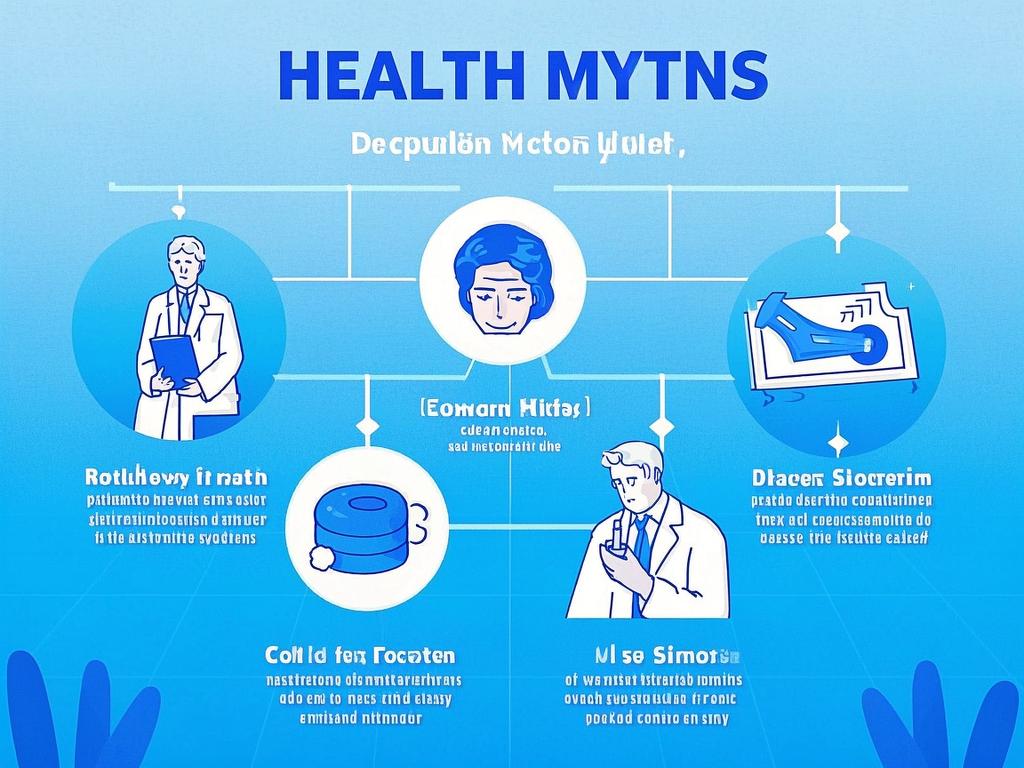
# The Top 5 Health Myths Debunked: What You Thought Was True Might Be Wrong
Hey there, health enthusiasts! 👋 Today, we're diving headfirst into the world of health myths and giving them a good old-fashioned debunking. You've probably heard these "facts" floating around, but are they really as true as they seem? Let's find out! 💥
## Myth #1: Cracking Your Knuckles Causes Arthritis
Oh, that satisfying pop! 🤌 We've all done it, and we've all heard that it's going to give us arthritis. But here's the truth: there's no scientific evidence to support this claim. Cracking your knuckles is simply the release of gas bubbles in the synovial fluid of your joints. It doesn't cause any long-term damage or increase your risk of arthritis. So go ahead and crack away, folks! Your joints will thank you for it. 😜
## Myth #2: Eating Carrots Will Improve Your Eyesight
Carrots are often hailed as the ultimate food for good eyesight, thanks to their high vitamin A content. While vitamin A is important for eye health, eating carrots alone won't magically improve your vision. In fact, a study published in the *British Journal of Ophthalmology* found that there's no significant difference in vision between people who eat a lot of carrots and those who don't. So if you're looking to improve your eyesight, make sure you're getting a balanced diet that includes plenty of fruits, vegetables, and other nutrients. 🍎🥦
## Myth #3: Reading in the Dark Will Ruin Your Eyesight
Remember when your parents used to tell you not to read in the dark because it would damage your eyes? Well, turns out they were wrong. Reading in low light conditions won't cause any permanent damage to your eyesight. However, it can cause eye strain and fatigue, which can lead to headaches and difficulty focusing. So if you're going to read in the dark, make sure you have good lighting and take breaks every once in a while to give your eyes a rest. 📖💡
## Myth #4: Sugar Causes Hyperactivity in Children
If you've ever given a child a sugary treat and watched them turn into a hyperactive ball of energy, you might think that sugar is the culprit. But according to the *American Academy of Pediatrics*, there's no scientific evidence to support the claim that sugar causes hyperactivity in children. In fact, a study published in the *Journal of Pediatrics* found that there's no difference in behavior between children who consume sugary foods and those who don't. So the next time your child is bouncing off the walls after a birthday party, don't blame the sugar. It's probably just the excitement of the occasion. 🎉🍰
## Myth #5: Vaccines Cause Autism
This one is perhaps the most dangerous myth on our list. The idea that vaccines cause autism has been thoroughly debunked by numerous scientific studies, but unfortunately, it still persists in some circles. The original study that linked vaccines to autism has been discredited, and subsequent research has found no evidence of a connection. Vaccines are one of the most important public health interventions of our time, and they have saved countless lives. So please, do your part to protect yourself and your community by getting vaccinated. 💉
So there you have it, folks! The top 5 health myths debunked. I hope this article has been informative and entertaining. Remember, just because something sounds too good to be true doesn't mean it is. Always do your research and consult with a qualified healthcare professional before making any major health decisions. And if you have any other health myths that you'd like to see debunked, leave them in the comments below! I'd love to hear from you. 👇
Let's spread the truth and keep our bodies healthy, one myth at a time! 💪
[Disclaimer: The information provided in this article is for educational purposes only and should not be construed as medical advice. Always consult with a qualified healthcare professional before making any health-related decisions.]

